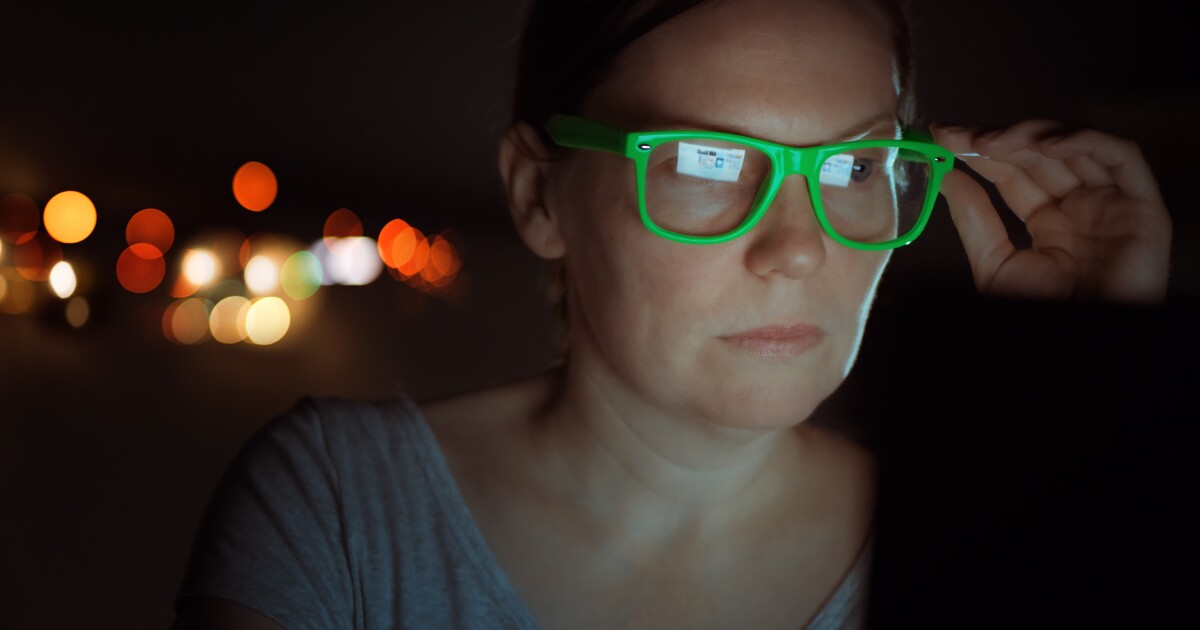In a study of studies, researchers concluded that eyeglasses that block blue light might not deliver on claims made by advertisers or optometrist offices. They caution consumers to think twice about shelling out the extra cash for the specs.
“The amount of blue light our eyes receive from artificial sources, such as computer screens, is about a thousandth of what we get from natural daylight," he said. "It’s also worth bearing in mind that blue-light filtering lenses typically filter out about 10-25% of blue light, depending on the specific product. Filtering out higher levels of blue light would require the lenses to have an obvious amber tint, which would have a substantial effect on color perception.”



Yeah, I’m pretty sure I read that your circadian rhythm is really set by basically the brightest light you see regularly. And just outside is orders of magnitude brighter than any screen you’d look at. So, as long as you anchor yourself to sunlight the rest is all quite negligible.